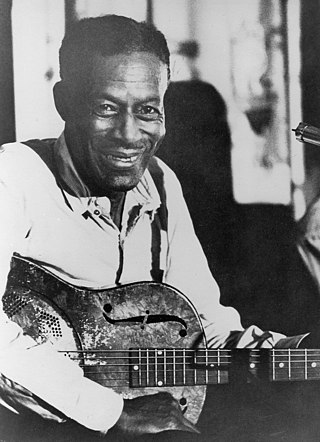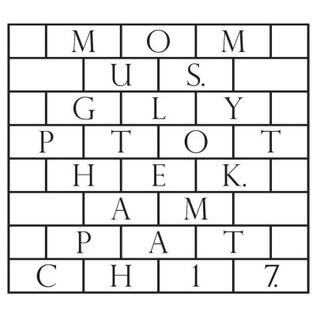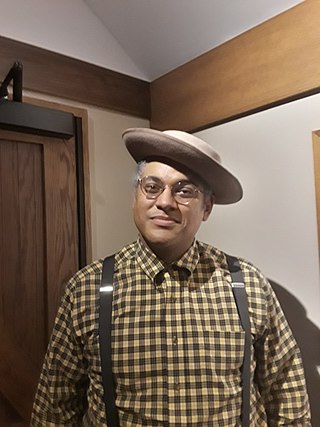
Edward James "Son" House Jr. was an American Delta blues singer and guitarist, noted for his highly emotional style of singing and slide guitar playing.

Anthony James Donegan, known as Lonnie Donegan, was a Scottish skiffle singer, songwriter and musician, referred to as the "King of Skiffle", who influenced 1960s British pop and rock musicians. Born in Scotland and brought up in England, Donegan began his career in the British trad jazz revival but transitioned to skiffle in the mid-1950s, rising to prominence with a hit recording of the American folk song "Rock Island Line" which helped spur the broader UK skiffle movement.

Child Is Father to the Man is the debut album by Blood, Sweat & Tears, released in February 1968. It reached number 47 on the Billboard pop albums chart in the United States.

The Waifs are an Australian folk rock band formed in 1992 by sisters Vikki Thorn and Donna Simpson as well as Josh Cunningham. Their tour and recording band includes Ben Franz (bass), David Ross Macdonald (drums) and Tony Bourke.

John Renbourn was an English guitarist and songwriter. He was best known for his collaboration with guitarist Bert Jansch as well as his work with the folk group Pentangle, although he maintained a solo career before, during and after that band's existence (1967–1973). He worked later in a duo with Stefan Grossman.

Merle Robert Travis was an American country and western singer, songwriter, and guitarist born in Rosewood, Kentucky, United States. His songs' lyrics often discussed both the lives and the economic exploitation of American coal miners. Among his many well-known songs and recordings are "Sixteen Tons", "Re-Enlistment Blues", "I am a Pilgrim" and "Dark as a Dungeon". However, it is his unique guitar style, still called "Travis picking" by guitarists, as well as his interpretations of the rich musical traditions of his native Muhlenberg County, Kentucky, for which he is best known today. Travis picking is a syncopated style of guitar fingerpicking rooted in ragtime music in which alternating chords and bass notes are plucked by the thumb while melodies are simultaneously plucked by the index finger. He was inducted into the Nashville Songwriters Hall of Fame in 1970 and elected to the Country Music Hall of Fame in 1977.

Vishwa Mohan Bhatt, professionally known as V. M. Bhatt, is a Hindustani classical music instrumentalist who plays the Mohan veena.

Wu Man is a Chinese pipa player and composer. Trained in Pudong-style pipa performance at the Central Conservatory of Music in Beijing, she is known for playing in a broad range of musical styles and introducing the pipa and its Chinese heritage into Western genres. She has performed and recorded extensively with Kronos Quartet and Silk Road Ensemble, and has premiered works by Philip Glass, Lou Harrison, Terry Riley, Bright Sheng, Tan Dun, Zhao Jiping, and Zhou Long, among many others. She has recorded and appeared on over 40 albums, five of which have been nominated for Grammy Awards. In 2013, she was named Instrumentalist of the Year by Musical America, becoming the first performer of a non-Western instrument to receive this award. She also received The United States Artists Award in 2008.
Alexander "Sandy" Bull was an American folk musician and composer. Bull was an accomplished player of many stringed instruments, including guitar, pedal steel guitar, banjo, and oud. His early work blends non-western instruments with 1960s folk revival, and has been cited as important in the development of psychedelic music.

Martin Stewart Simpson is an English folk singer, guitarist and songwriter. His music reflects a wide variety of influences and styles, rooted in Britain, Ireland, America and beyond. He builds a purposeful, often upbeat voice on a spare picking style.

William Bell is an American soul singer and songwriter. As a performer, he is probably best known for his debut single, 1961's "You Don't Miss Your Water"; 1968's top 10 hit in the UK "Private Number", a duet with Judy Clay; and his only US top 40 hit, 1976's "Tryin' to Love Two", which also hit No. 1 on the R&B chart. Upon the death of Otis Redding, Bell released the well-received memorial song "A Tribute to a King".

Water Lily Acoustics is an American record label in Santa Barbara, California founded in 1985 by Kavichandran Alexander, a Tamil from Sri Lanka. Alexander is a record producer and audio engineer. He named the label after his mother, Lily. The label primarily releases recordings of Indian classical music and collaborations by musicians from around the world. At its inception, the Alexander emphasized Eastern musicians, espousing the belief that they had seldom been recorded with proper sound quality compared to their Western counterparts. He began to include music from outside Asia. Alexander has recorded and produced musicians such as José Neto, Ali Akbar Khan, V. G. Jog, Vishwa Mohan Bhatt, Ry Cooder, Jerry Douglas, Béla Fleck, Taj Mahal, Papa Susso, Jiebing Chen, Simon Shaheen, Hungarian National Philharmonic, Philadelphia Orchestra, and the Saint Petersburg Philharmonic Orchestra. Music he has recorded has appeared in the films Angel Eyes, Dead Man Walking, and Meet the Fockers.

Lily Frost, born Lindsey Frost Davis, is a Canadian independent singer-songwriter from Toronto, Ontario. Bilingual in French and English, she is a cross-genre, multi disciplinary singer/songwriter/performer and recording artist.

The Best of the Vanguard Years is a compilation album by American folk singer Odetta, originally released in 1999.

A Meeting by the River is an album recorded by Ry Cooder and Vishwa Mohan Bhatt; it was recorded in September 1992 and released in April 1993 through the record label Water Lily Acoustics. This improvised, collaborative album features Cooder on slide guitar and Bhatt on the Mohan veena, a stringed instrument created by Bhatt. A Meeting by the River was produced by Kavichandran Alexander and Jayant Shah, engineered by Alexander, and mastered by Kevin Michael Gray and Paul Stubblebine. It peaked at number four on Billboard's Top World Music Albums chart, and earned Cooder and Bhatt Grammy Awards for Best World Music Album at the 36th Grammy Awards in 1994. The album is included in Tom Moon's 2008 book 1,000 Recordings to Hear Before You Die.

Pokey LaFarge is an American musician and singer-songwriter.
Kavichandran Alexander is an audio engineer and record producer. He is the founder of the American record label, Water Lily Acoustics. Alexander was the producer and engineer for the 1993 album A Meeting by the River, featuring Ry Cooder and Vishwa Mohan Bhatt, which won a Grammy Award for Best World Music Album.

Three Score and Ten: A Voice to the People is a multi-CD box set album issued by Topic Records in 2009 to celebrate 70 years as an independent British record label.

Glyptothek is an album by Scottish musician Momus. It was released on 5 December 2015 by independent record label American Patchwork on CD and distributed by Darla Records.

Dominique Flemons is an American old-time music, Piedmont blues, and neotraditional country multi-instrumentalist, singer, and songwriter. He is a proficient player of the banjo, fife, guitar, harmonica, percussion, quills, and rhythm bones. He is known as "The American Songster" as his repertoire of music spans nearly a century of American folklore, ballads, and tunes. He has performed with Mike Seeger, Joe Thompson, Martin Simpson, Boo Hanks, Taj Mahal, Old Crow Medicine Show, Guy Davis, and The Reverend Peyton's Big Damn Band.



















